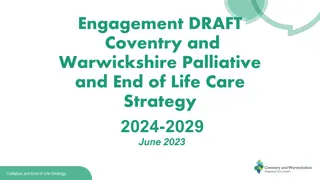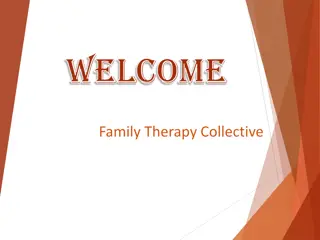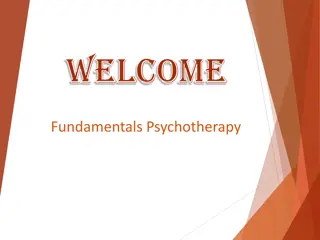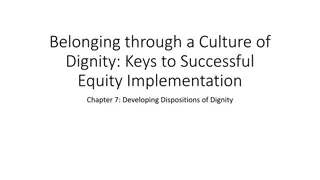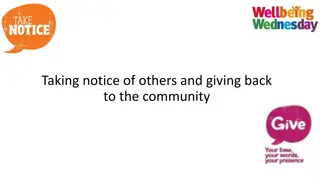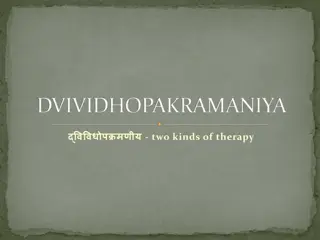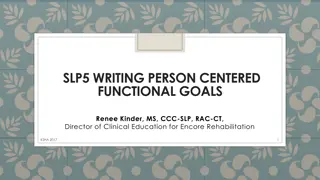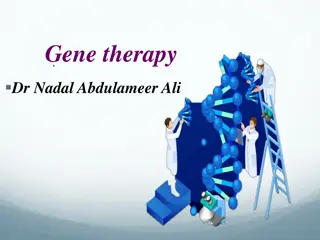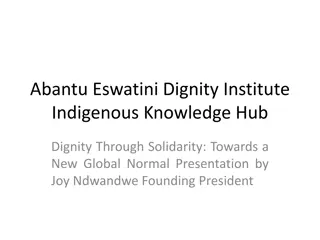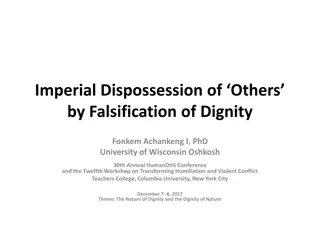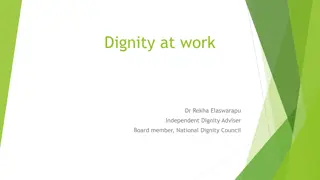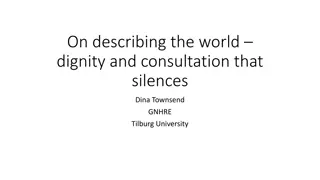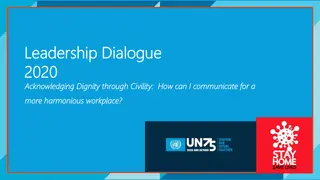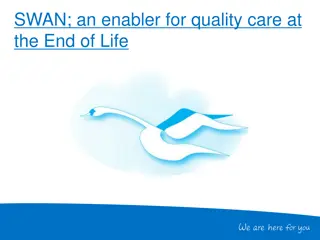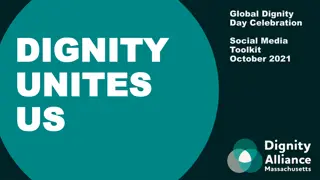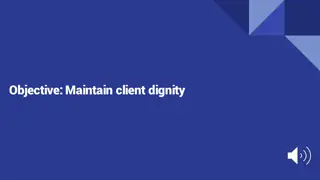Enhancing End-of-Life Meaning Through Dignity Therapy
Explore the profound impact of Dignity Therapy in end-of-life care, focusing on acknowledging personhood, reducing depression, and increasing dignity. Learn about essential questions and protocols to enhance the quality of care provided to individuals in hospice or palliative settings.
Download Presentation

Please find below an Image/Link to download the presentation.
The content on the website is provided AS IS for your information and personal use only. It may not be sold, licensed, or shared on other websites without obtaining consent from the author. Download presentation by click this link. If you encounter any issues during the download, it is possible that the publisher has removed the file from their server.
E N D
Presentation Transcript
Lasting Legacy: Using Dignity Therapy to Enhance Meaning at the End of Life Harvey Max Chochinov, MD Ph.D., Presented by Noel Kennedy PSW
The Life of Death Marsha Onderstijn works as a freelance animator and storyboard artist. She has recently brought to life the deeply moving and emotionally intense short film The Life of Death featuring the music of Ramon de Wilde. https://www.youtube.com/watch?v=ofnCdC8P70g Watch
Being Seen Dignity Therapy Brief, individualized, evidenced-based psychotherapy for adults in hospice or palliative care Typically performed in 2 Sessions over 2-3 weeks
What We Know / Outcomes Stories acknowledge personhood Reduce depression Decrease sense of suffering Increase sense of dignity Change the way the family sees them May increase positive outcomes May be adapted for other populations
Questions you can ask When did you feel most alive? What do I need to know about you as a person to give you the best care possible?
Lets Talk Series: A Journey https://www.youtube.com/watch?v=QglpwO8POvI
Dignity Psychotherapy Question Protocol Tell me a little about your life history; particularly the parts that you either remember most, or think are the most important? When did you feel most alive? Are their specific things that you would want your family to know about you, and are their particular things you would want them to remember?
Dignity Psychotherapy Question Protocol (continued) What are the most important roles you have played in life (family roles, vocational roles, community service roles, etc)? Why were they so important to you and what do you think you accomplished in those roles? What are your most important accomplishments, and what do you feel most proud of?
Dignity Psychotherapy Question Protocol (continued) Are there particular things that you feel still need to be said to your loved ones, or things that you would want to take the time to say once again? What are your hopes and dreams for your loved ones?
Dignity Psychotherapy Question Protocol (continued) What have you learned about life that you would want to pass along to others? What advice or words of guidance would you wish to pass along to your [son, daughter, husband, wife, parents, other(s)]? Are their words or perhaps even instructions you would like to offer your family, to help prepare them for the future? In creating this permanent record, are their other things that you would like included?
You matter because you are you and you matter to the last day of your life. We will do everything we can to help you die peacefully and to live until you die . Dr Cecily Saunders












